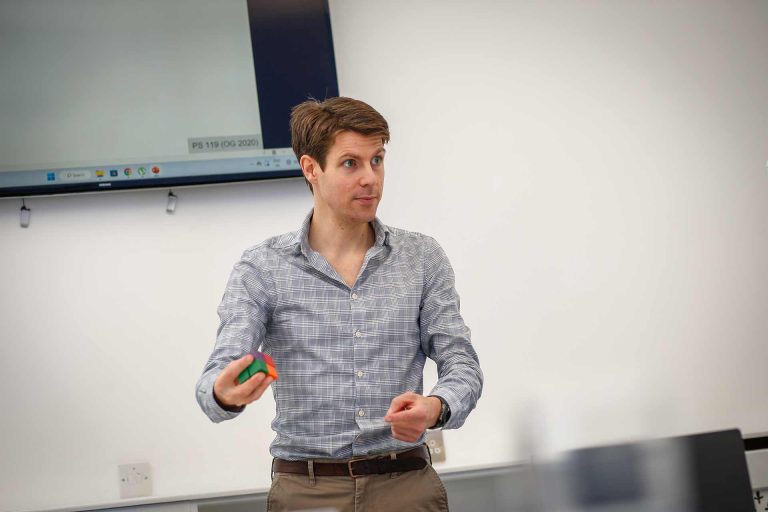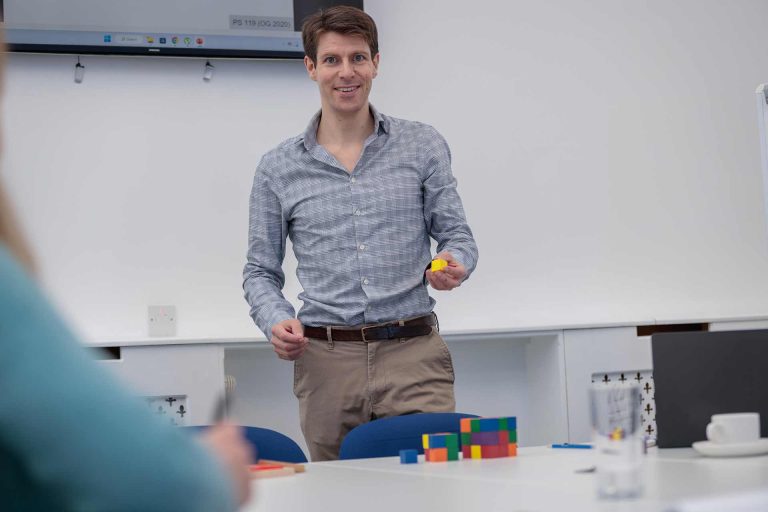If you’re just starting out with the GMAT, then you’ve probably got the question ‘How long is it going to take for me to pass the GMAT?’. Here 6 things to consider:
- You don’t pass or fail the GMAT. You get a score out of 800 (based on your quant and verbal sections – the Integrated Reasoning and Essay are scored separately and are less important). A score of 700 corresponds to approximately the top 10% of GMAT exams and is generally considered a good score. Different schools have different average scores, and schools will look for different scores from different candidates. If a school likes your profile, they may accept you with a lower score. Similarly, schools frequently turn away high-scorers. As much as it’s healthy to aim high, the score you need (hence the time you need to invest in studying) is not obvious. Takeaway: start your application research early.
- Get some GMAT experience so that you know what you’re up against. Try out some Official Guide problems (an invaluable resource for any GMAT student). Try out the official ‘mini quiz’ (https://www.mba.com/gmat-mini-quiz) or, even better, try out a free full length practice test (https://www.mba.com/exam-prep/gmat-official-starter-kit-practice-exams-1-and-2-free). Although the score you receive for a first attempt will likely be lower than you’re capable of, you’ll have a better idea of the skills involved. Lesson: learn through experience.
- GMAT progress is unpredictable. I’ve helped hundreds of students prepare for the GMAT and I’ve seen just about every possible pathway. I’ve seen students who really struggle with the basics going on to score over 700, Maths graduates finding it hard to adapt to the style of quantitative reasoning, some students plateauing at many levels, and others finding unexpected satisfaction in their studies. It’s hard to make a precise prediction for how long a student will need to reach their goal. For all these considerations, top scoring (700+) students study for around 100 hours studying for the GMAT over 8+ weeks (more information here: https://www.mba.com/exams-and-exam-prep/how-long-should-you-study-for-the-gmat-exam). Takeaway: be flexible with your timetable.
- As you may have seen in my article (What’s the point of this GMAT thing anyway?), the GMAT mostly aims to test a bunch of skills. Learning skills involves changing your way of thinking. Changing your way of thinking happens most effectively when you’re calm, rested, positive, and confident. As much as there will inevitably be some stress in preparing for the GMAT, I strongly advise not cramming for this test. In my experience, it rarely works. Takeaway: start your prep early and give yourself time.
- Some students find the GMAT harder than others. That’s not a question of intelligence, but a reflection of what skills people have acquired in their lives. (see ‘Why is my friend so much better than me at the GMAT?’). I’ve identified three things that can be significant obstacles to progress on the GMAT: (a) Math-phobia. If you describe yourself as ‘hating Math’ or as ‘bad at Math’, then taking the GMAT may involve changing your self-identity. The GMAT actually doesn’t require any high-level Math (it contains less that what is taught, in most countries, to 16 year olds). However, it still has some difficulties and requires you to deal with equations and exponents, fractions and functions, statistics and shapes. (b) Non first-language English. The verbal section contains some tricky academic articles and the quant section contains some complicated word problems. If your vocabulary in English is small, or if you mostly speak other languages, these might be difficult for you. Think how many books you’ve read in English compared to those in other languages. Of course, your level of English can change, but it will take time. (c) Exam anxiety. It’s normal (healthy, even) to feel a bit nervous before exams, but if you’ve experienced significant anxiety, then the GMAT may be a challenge. The good news is that this is definitely changeable, but it could take time. All of these three things can be overcome, and I find it especially satisfying to work with students who experience the things I’ve listed above. My passion for Maths as something real (in contrast to how it’s often taught to children), my past career of teaching English, and my experience of piano performance give me some approaches to solve these challenges. Takeaway: if you experience one of the things above, leave longer for your studies and consider hiring a tutor.
- Studying for the GMAT is not like being at school or college. When we were children, learning was our primary activity: we had plenty of time in the classroom, we discussed ideas with our friends, we had homework to reinforce new material. Most GMAT students are not it that position: jobs, families, and other responsibilities mean that you have less time and energy for the GMAT. Additionally, you’re probably not in ‘learning mode’ (this applies especially to students preparing for the EA, who are often in managerial positions). All this can be a barrier to effective progress. I’ve seen many adults who were very successful in their academic past have trouble getting into the right frame of mind for GMAT study. Takeaway: be prepared to challenge your mindset.








